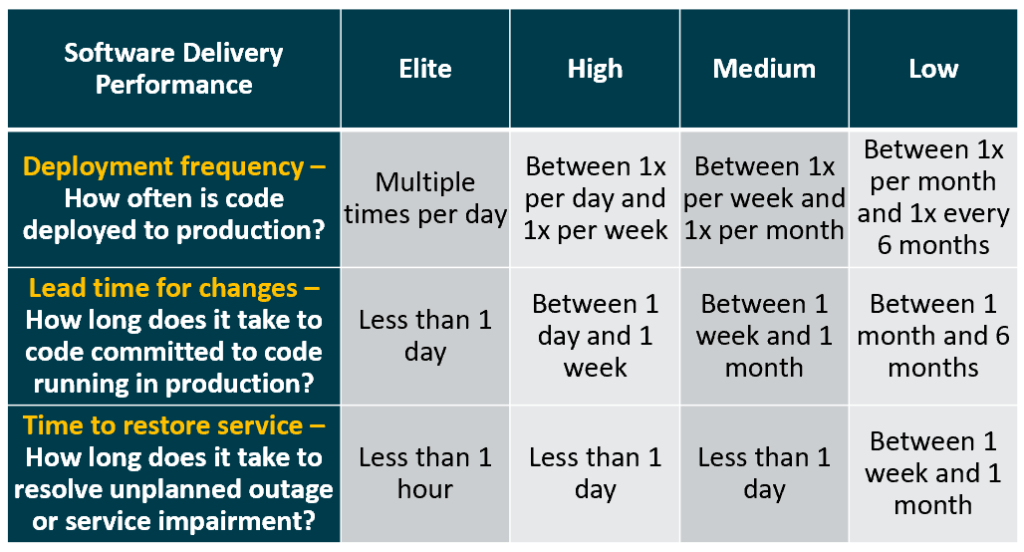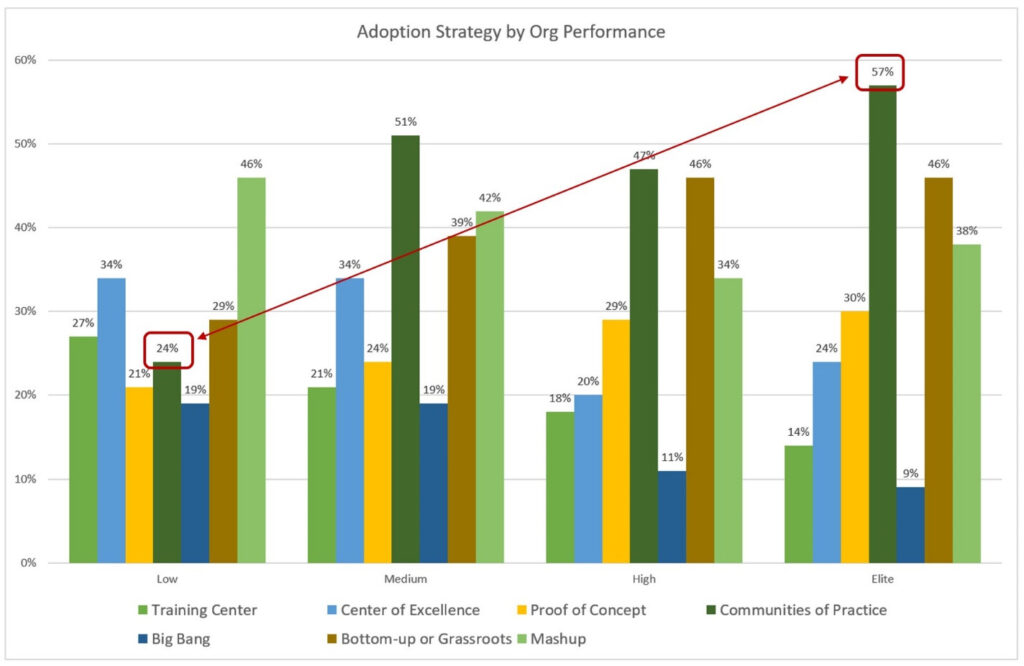Dissecting the 2019 State of DevOps Report, Part 3: DevOps Adoption Strategy
In the final part of this three-part series on an in-depth look into DevOps trends, I will focus on DevOps Adoption Strategies employed across the market today.
To briefly revisit Part 1, according to the State of DevOps Report, organizations that apply DevOps practices fall into one of the four groups based on their level of sophistication.

Within this report, we can see some interesting data that provides fascinating insights into the current business climate with regards to DevOps, which remains a fluid and evolving domain. Today’s organizations that adopt DevOps have many options in terms of how they strategically make such a transformation. Some of the options include:
- Communities of Practice
- Bottom-up or Grassroots
- “Mashup”
- Proof of Concept
- Center of Excellence
- Training Center
- “Big Bang”
As indicated by the graphic below, Elite performers tend to leverage Communities of Practice as their method to adopt DevOps. Conversely, Low performers are more inclined to follow a “Mashup” approach, which is a hybrid or combination of various techniques. Comparing Elite to Low performers, there’s a 33% gap with regards to application of Communities of Practice, which may seem surprising on the surface, yet it also appears logical. Low performing organizations seem to favor a Center of Excellence approach, which may actually contribute to its inability to produce positive results because Centers of Excellence are generally deployed as rigid, bureaucratic organizations that tend to add delay and stifle innovation within a company.

Based on my experience working with Agile/DevOps transformations, flexibility and adaptability are cornerstones to an organization’s ability to learn and grow; highly-structured and heavy organizational processes may provide a sense of security, but hamper continuous learning and experimentation which are keys to an effective DevOps adoption. While it is not impossible for companies to achieve success through a Center of Excellence approach, having more organic, practitioner-sponsored Communities of Practice will usually motivate more cross-learning which may lead to better outcomes in the end.
Within the dynamic world of DevOps and Agile transformation, it is nearly impossible to know precisely the best strategy will lead to success, which is why iterative experimentation and continuous adaptation is a critical mindset to have. If your organization is unsure how to approach its digital transformation, my recommendation is to start small, seek to achieve small successes, and build momentum towards larger, more complex strategic changes. As someone much more famous than I once said, “Rome wasn’t built in a day”, and the same can be said about a mature DevOps adoption. Applying DevOps is not just about tools; it’s about people, processes and tools. If you aspire to be an Elite performing organization, you must master all three dimensions. Choose the aspect that your organization is most versed and grow from there.
Read Part 1: DevOps Practices and Part 2: DevOps Tools of this blog series.



